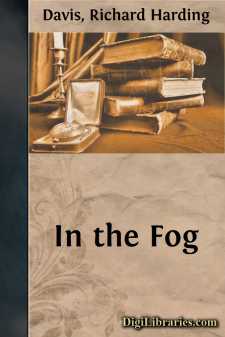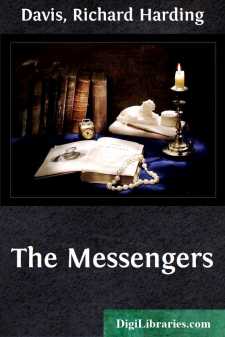Categories
- Antiques & Collectibles 13
- Architecture 36
- Art 48
- Bibles 22
- Biography & Autobiography 813
- Body, Mind & Spirit 142
- Business & Economics 28
- Children's Books 16
- Children's Fiction 13
- Computers 4
- Cooking 94
- Crafts & Hobbies 4
- Drama 346
- Education 46
- Family & Relationships 57
- Fiction 11829
- Games 19
- Gardening 17
- Health & Fitness 34
- History 1377
- House & Home 1
- Humor 147
- Juvenile Fiction 1873
- Juvenile Nonfiction 202
- Language Arts & Disciplines 88
- Law 16
- Literary Collections 686
- Literary Criticism 179
- Mathematics 13
- Medical 41
- Music 40
- Nature 179
- Non-Classifiable 1768
- Performing Arts 7
- Periodicals 1453
- Philosophy 64
- Photography 2
- Poetry 896
- Political Science 203
- Psychology 42
- Reference 154
- Religion 513
- Science 126
- Self-Help 84
- Social Science 81
- Sports & Recreation 34
- Study Aids 3
- Technology & Engineering 59
- Transportation 23
- Travel 463
- True Crime 29
The Amateur
Description:
Excerpt
I
It was February off the Banks, and so thick was the weather that, on the upper decks, one could have driven a sleigh. Inside the smoking-room Austin Ford, as securely sheltered from the blizzard as though he had been sitting in front of a wood fire at his club, ordered hot gin for himself and the ship's doctor. The ship's doctor had gone below on another "hurry call" from the widow. At the first luncheon on board the widow had sat on the right of Doctor Sparrow, with Austin Ford facing her. But since then, except to the doctor, she had been invisible. So, at frequent intervals, the ill health of the widow had deprived Ford of the society of the doctor. That it deprived him, also, of the society of the widow did not concern him. HER life had not been spent upon ocean liners; she could not remember when state-rooms were named after the States of the Union. She could not tell him of shipwrecks and salvage, of smugglers and of the modern pirates who found their victims in the smoking-room.
Ford was on his way to England to act as the London correspondent of the New York Republic. For three years on that most sensational of the New York dailies he had been the star man, the chief muckraker, the chief sleuth. His interest was in crime. Not in crimes committed in passion or inspired by drink, but in such offences against law and society as are perpetrated with nice intelligence. The murderer, the burglar, the strong-arm men who, in side streets, waylay respectable citizens did not appeal to him. The man he studied, pursued, and exposed was the cashier who evolved a new method of covering up his peculations, the dishonest president of an insurance company, the confidence man who used no concealed weapon other than his wit. Toward the criminals he pursued young Ford felt no personal animosity. He harassed them as he would have shot a hawk killing chickens. Not because he disliked the hawk, but because the battle was unequal, and because he felt sorry for the chickens.
Had you called Austin Ford an amateur detective he would have been greatly annoyed. He argued that his position was similar to that of the dramatic critic. The dramatic critic warned the public against bad plays; Ford warned it against bad men. Having done that, he left it to the public to determine whether the bad man should thrive or perish.
When the managing editor told him of his appointment to London, Ford had protested that his work lay in New York; that of London and the English, except as a tourist and sight-seer, he knew nothing.
"That's just why we are sending you," explained the managing editor. "Our readers are ignorant. To make them read about London you've got to tell them about themselves in London. They like to know who's been presented at court, about the American girls who have married dukes; and which ones opened a bazaar, and which one opened a hat shop, and which is getting a divorce. Don't send us anything concerning suffragettes and Dreadnaughts. Just send us stuff about Americans....












